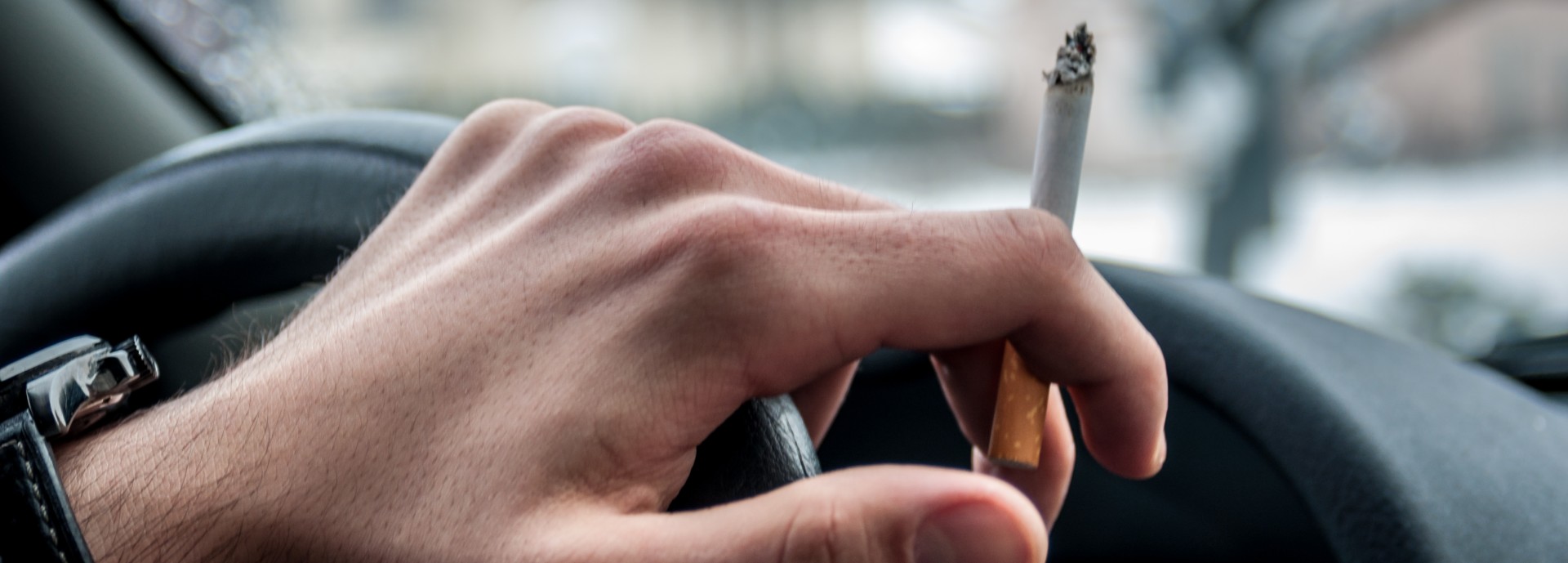Hospitalisations for asthma in pre-school children fell in Scotland in the two years following legislation that banned smoking in vehicles containing a child.
The Smoking Prohibition (Children in Motor Vehicles) Bill was passed by the Scottish Parliament in 2016, making it illegal to smoke in a vehicle with anyone under the age of 18. Five years on, new research involving the University of Stirling has found that this change in the law was associated with a decrease in hospital admissions for severe asthma attacks in the under-five age group.
Published in The Lancet Public Health, the study was led by the University of Glasgow and involved Dr Sean Semple, of the University of Stirling's Institute for Social Marketing and Health, and the University of Aberdeen.
Dr Semple said: “Building on previous work where we measured very high concentrations of particles in cars when people smoked, this study shows an association between smoke-free car legislation and a reduction in the number of young children who suffer severe asthma attacks. Protecting children from second-hand smoke is a global issue and we hope the results of this study can help inform other countries on the benefits of smoke-free cars.”

Dr Sean Semple worked on the new research.
The researchers looked at data on all asthma emergency hospitalisations in Scotland between 2000 and 2018 for individuals aged 16 years or younger. They found that, after the smoke-free vehicle legislation was passed, asthma hospitalisations fell by 1.49% per month among pre-school children, though not in older children.
The study also shows that hospitalisations fell significantly among children living in the most affluent areas (2.27% per month) but not in those living in the most deprived areas. There was no change in hospitalisations for gastroenteritis or other respiratory conditions following the legislation.
Exposure of pre-school children to second-hand smoke is thought to be mainly due to parental smoking in their homes or family vehicles.
Globally, exposure to second-hand smoke is responsible for an estimated 169,000 deaths in childhood annually. Children exposed to second-hand smoke in cars are more likely to develop wheeze and have poorer lung function than children exposed to second-hand smoke at home, as well as unexposed children.
Estimates of the percentage of cases of childhood asthma attributable to second-hand smoke exposure range from 1.3% to 8.2%. Second-hand smoke exposure also increases the risk of exacerbating asthma symptoms among young children who already have the condition.
Benefit
Professor Jill Pell, lead author from the University of Glasgow, said: “Our study demonstrates the significant benefit to children that smoke free vehicle legislation has had. We found that the reduction in asthma hospitalisations was specific to pre-school children, which is plausible given that exposure to parental smoke is more likely among pre-school children, who spend more time with their parents.
“Our findings also suggested a possible widening of health inequalities whereby the relative reduction in childhood asthma hospitalisations was greater among those living in the most affluent areas. This could be due to different starting points or differences in car ownership or compliance with the legislation; but merits further research.”
Over the 19-year study period (1 January 2000 and 31 December 2018), there were 32,342 emergency hospitalisations for asthma among children aged less than 16 years; 13,954 (43%) among children under five years of age, and 18,388 (57%) among children aged five to 15 years. Of the children hospitalised, 10,179 (31%) lived in areas in the most deprived quintile, 5,775 (18%) in the middle quintile, and 4,046 (13%) in the most affluent quintile. Researchers also considered the fact that in Scotland, childhood asthma hospitalisations had already fallen as a result of legislation in 2006 banning smoking in public places.
The study, ‘Impact of smoke-free vehicle legislation on childhood hospitalisations for asthma: an interrupted time-series analysis of Scottish data over 19 years’ is published in The Lancet Public Health.

